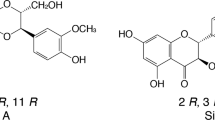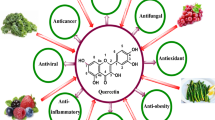Abstract
Objective
To evaluate the in vitro effects of chichorium intybus on bilirubin levels.
Methods
In this study the bilirubin levels in the serum of thirty neonates staying in the NICU and suffering from clinical jaundice was determined three times: first without any alterations, second after adding chichorium intybus extract and third after adding the same amount of distilled water. The results were compared using SPSS statistical software.
Results
Of the patients evaluated 76.7% were male and 23.3% were female. The average age was 7.35 days. The mean difference observed in unconjugated bilirubin levels in the specimens containing chichorium intybus extract was 3.84 ± 2.38 mg/dl and in the ones containing distilled water was 2.85 ± 2.00 mg/dl. The mean difference observed in conjugated bilirubin levels was 0.29 ± 0.32 mg/dl in specimens containing distilled water and 0.35 ± 0.26 in the ones containing chichorium intybus. In none of the cases the results were found to be significant.
Conclusion
In this study chichorium intybus was found to have no significant in vitro effect on the bilirubin level reported by the laboratory. The in vivo effects of this herbal medicine must be evaluated more closely.
Similar content being viewed by others
Refrences
Stoll B, Kliegman R. Jaundice and hyperbilirubinemia in the newborn. In Behemen R, Kliegman R, Jenson H. Nelson Textbook in Pediatrics, 17th ed. Philadelphia; Saunders, 2004; 592–596.
Martin RJ, Fanaroff AA, Walsh MC. Fanaroff and Martins neonatal-perinatal medicine: Diseases of the fetus and infant. In Wong RJ, Desander GH, Sibley E, Stevenson DK. Neonatal Jaundice and Liver Disease, 8th ed. Philadelphia; Mosby, 2006; 1443–1450.
Schleicher H. Phototherapy in pediatrics. Philadelphia; WB Saunders, 2002; 1–18.
Peti TP. Inhibitory effect of mast-cell mediated type allergic reactions. By cichorium intybus. Pharmacol Res 1999; 40: 61–65.
Curhuz I, Ustun O, Yesilada, E et al. In vivo gasteroprotective effect of five Turkish folk remedies against ethanol-induced lesion. J Enteropharmacol 2002; 83: 241–244.
Huang W, Zhang J, Moore DD. A traditional herbal medicine enhances bilirubin clearance by activating the nuclear receptor CAR. J Clin Invest 2004; 113: 23–25.
Huseini HF, Alavian SM, Heshmat R, Heshmat R, Heydari MR, Abolmaali K. The efficacy of Liv-52 on liver cirrhotic patients: a randomized, double — blind, placebo-controlled first approach. Phytomedicine 2005; 12: 619–624.
Kuo CY, Chang PC, Wei JS. The effect of decoction of Artemisia, Rheum, and Gardeniae in a piglet model of hyperbilirubinemia. Zhonghua Min Guo Ziao Er Ke Yi Xue Za Zhi 1996; 37: 253–256.
Ahmed B, Al-Howiriny TA, Siddiqui AB. Antihepatotoxic activity of seeds of cichorium intybus. J Ethnopharmacol 2003;87: 237–240.
Author information
Authors and Affiliations
Corresponding author
Rights and permissions
About this article
Cite this article
Nassirian, H., Eslami, S.T. Effects of Chichorium intybus on bilirubin. Indian J Pediatr 75, 331–333 (2008). https://doi.org/10.1007/s12098-008-0033-6
Received:
Accepted:
Published:
Issue Date:
DOI: https://doi.org/10.1007/s12098-008-0033-6




